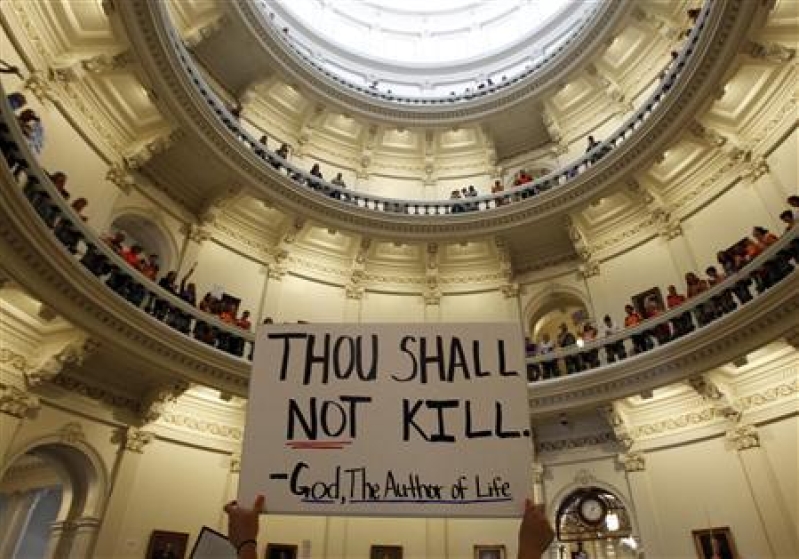
Four years of lawsuits from religious nonprofit groups are expected to conclude Wednesday in a Supreme Court case that tests the contraceptive and abortifacient mandate of the Affordable Care Act announced by U.S. Department of Health and Human Services in 2010.
Nonprofits that do not comply with the mandate face massive fines. It is less expensive to drop insurance altogether than to pay fines for not having contraceptives.
Read previous coverage of the issue from The Gospel Herald: Christian Groups tell Supreme Court Federal Abortion-Contraception Mandate Violates Religious Beliefs
Catholic, Protestant, Muslim, Hindu and Jewish organizations filed volumes of amicus briefs in the Little Sisters of the Poor case, officially known as Zubik v. Burwell, arguing the issue before the court is bigger than contraceptives and abortifacients. A few of the briefs help clarify the Little Sisters' case and its religious freedom implications, reports World News.
In addition to the Little Sisters (nuns who run nursing homes for the elderly poor), the seven consolidated cases represent Catholic dioceses, Priests for Life, Guidestone Financial Resources, and several religious colleges. Five of the universities in the case - East Texas Baptist University, Geneva College, Houston Baptist University, Oklahoma Baptist University, and Southern Nazarene University - are members of the Council for Christian Colleges and Universities, which also filed a brief supporting the schools.
The Zubik v. Burwell case was specifically compiled with the following cases:
- Priests for Life v. Burwell
- Southern Nazarene University v. Burwell
- Geneva College v. Burwell
- Roman Catholic Archbishop of Washington v. Burwell
- East Texas Baptist University v. Burwell
- Little Sisters of the Poor Home for the Aged v. Burwell
These cases are among 56 involving religious, nonprofit organizations that object to the rule issued in 2011 by HHS. HHS provided an exemption to the rule for churches and their auxiliaries but did not extend it to non-church-related, nonprofit organizations that object. It issued an accommodation for religious nonprofits, but many of those ministries or institutions have found it unacceptable. They contend it still makes them complicit in covering contraceptives and potentially abortion-causing drugs.
Many religious groups and denominations filed amicus briefs in the case on the side of Little Sisters (though churches are entirely exempt from the Obamacare mandate): the Lutheran Church-Missouri Synod, the Assemblies of God, the Church of God in Christ, the Southern Baptist Convention, the Church of Jesus Christ of Latter-day Saints, the Seventh-day Adventist Church, Orthodox Jewish rabbis, the American Islamic Conference, and the Orthodox Church in America, among others.
One brief from several minority religious groups-the Church of the Lukumi Babalu Aye, the International Society for Krishna Consciousness, the Islamic Center of Murfreesboro (Tenn.), and members of the Lipan Apache Tribe-emphasizes the impact the case would have on minority religions in particular. Their brief states: "If government actors have carte blanche to re-examine the veracity of religious beliefs, the rights of adherents to minority religions will be in even greater peril."
The brief concludes: "When courts do not understand a religious practice, they are more likely to undervalue the substantiality of burdens placed on that practice."
One brief focuses on the more strict legal arguments the court will consider. The National Association of Evangelicals, along with the Mormon church, the Assemblies of God, a Catholic order, and Colorado Christian University, makes a complex but clear argument about the "third-party harm" a religious exemption to the mandate would cause to female employees. That was a concern of some of the justices in the Hobby Lobby case about for-profit businesses, reports World News. The groups in this brief lay out a history of Supreme Court rulings, indicating third-party considerations have not been enough to defeat religious exemptions in the past.
The court is expected to issue its opinion before its term ends, which normally is in late June.







